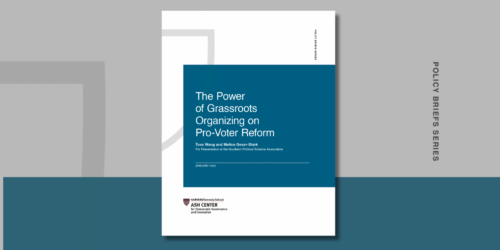The recent passage of major state-based voting rights legislation demonstrates the critical role grassroots organizations play in protecting and advancing U.S. democracy. In 2023, grassroots organizers, working in coalition, were instrumental in securing significant election reform and voter inclusion legislation in New Mexico and Minnesota. By documenting these landmark efforts, this paper offers a fresh perspective on how grassroots organizing can drive meaningful change in the voting rights arena.
In academic literature, news reporting, and the public consciousness, contemporary voting reform is traditionally viewed through a top-down lens, with “elite” actors—such as policy advocates, lawyers, and legislators—seen as the key drivers of change. In contrast, the role of grassroots activism in shaping contemporary voting rights reform is often overlooked. As a result, the work of organizers in legislative efforts is less understood than that of those who traditionally hold political power. However, under-resourced state-based grassroots organizations are often central to moving election reform policy. They educate constituents about policies, build networks of passionate communities, and mobilize their bases to impact policy decisions.
This paper challenges the traditional top-down approach to voting rights reform by examining how grassroots efforts often exhibit many of the features of social movements as they have been understood in scholarship and in the public mind. Historically, when we think of voting rights movements, we most often think of the Civil Rights Movement of the 1960s or the suffragists at the turn of the 20th century. Here, we look at how modern voting reform efforts also display key attributes of social movements.
Melina Geser-Stark is a Research Assistant at the Ash Center for Democratic Governance and Innovation.
Tova Wang is the Director of Research Projects in Democratic Practice at the Ash Center for Democratic Governance and Innovation.
The views expressed in this article are those of the author(s) alone and do not necessarily represent the positions of the Ash Center or its affiliates.




